To accompany your Come Follow Me study for September 16-22
In addition to your reading of 3 Nephi 1-7 this week, you may enjoy watching the following related videos:
You will also enjoy the following commentary from the Institute of Religion Book of Mormon Student Manual:
If you would like a Kahoot game related to this material which you could use for personal study or use with your family or your class, click here: https://create.kahoot.it/share/3-nephi-1-7/10d0183e-3f6f-47a4-81ca-37fda5bf5328 . To use it with a group, after clicking on this link, you will need to log into Kahoot, creating a free account if you have not done so previously, then click on the blue “Host Live” button or the gray “Assign” button, depending on how you wish to use the Kahoot. Some of the Kahoot questions may presuppose that the player has read through the suggested answers to the following Points to Ponder and at least has browsed the Institute student manual as well.
Points to Ponder in 3 Nephi 1-7
1. Which chapter or chapters from 3 Nephi 1-7 would you think would be most likely to be featured in the illustrated Book of Mormon Stories the Church has prepared for children? Why?
2. Samuel had prophesied in the 86th year of the reign of the judges that “five years more cometh, and behold then cometh the Son of God.” (Hel. 13:1-2; 14:2.) But after the 91st year had come and gone (more than 5 years later), “There were some who began to say that the time was past for the words to be fulfilled, which were spoken by Samuel.” (3 Ne. 1:1, 5.) Were they right? Was Jesus really overdue? What larger lesson is there here for us? (3 Ne. 1)
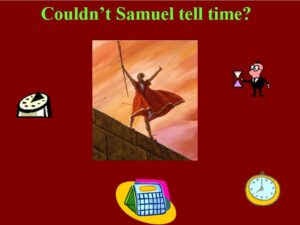
3. Why would the Lord have waited until the very last minute to show the signs of His coming–the very night before the believers were to have been executed? Didn’t He risk giving some of them heart attacks? What do we learn from this?
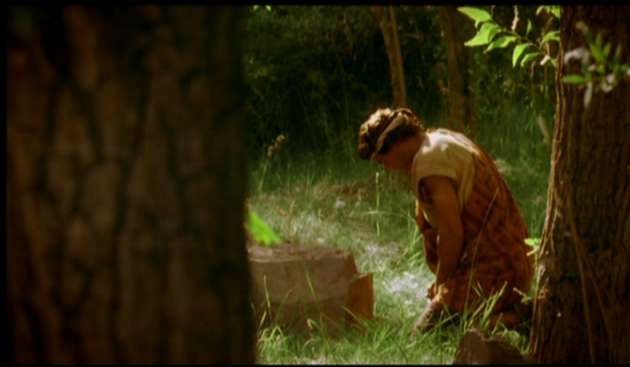
4. In the April 1987 General Conference, President Ezra Taft Benson said: “Recently I have been reading again the marvelous account in the Book of Mormon of the visit of the resurrected Savior to the American continent. As Easter approaches, I have been deeply impressed with the beauty and power of this scriptural account in 3 Nephi, and with its great value for our time and our generation. The record of the Nephite history just prior to the Savior’s visit reveals many parallels to our own day as we anticipate the Savior’s second coming.” Can you point to at least ten parallels between what occurred in 3 Nephi 1-7 and what is occurring or is prophesied to occur prior to the Savior’s Second Coming?
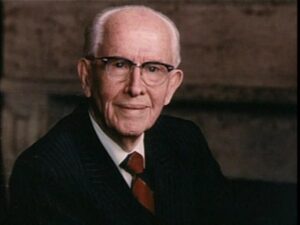
5. What relevance does 1:13 have for the abortion question? Is this verse evidence that the spirit doesn’t enter the body before birth? Or was the Savior’s voice simply tape‑recorded nine months earlier?
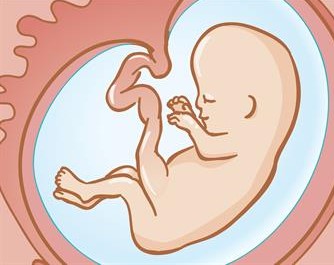
6. How could people who had seen the marvelous signs accompanying Christ’s birth either forget what they had seen or come to doubt their reality within two to four years? Could Joseph Smith have ever come to doubt the First Vision? Why or why not? (2:1)

7. What are probably the two best things we can do to protect ourselves against forgetting the spiritual experiences we have personally had? (2:1)
8. The Book of Mormon makes clear that the greatest military threats to come to the Nephites were occasioned by their wickedness. Do you think this was this because the Lord wouldn’t help the Nephites in battle when they were wicked, or because their potential enemies were more likely to become aggressive when they were wicked, or both? (2:19)
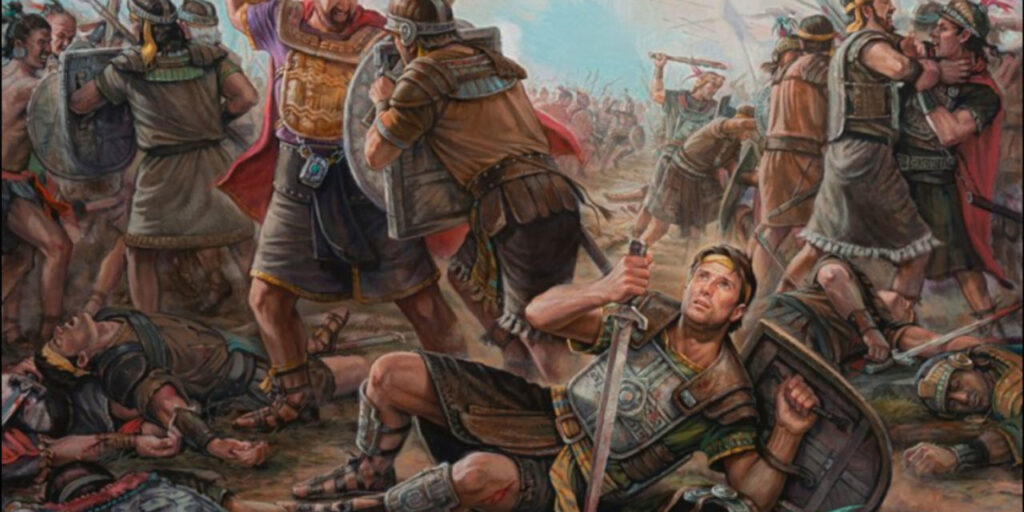
9. Does the tribute to Lachoneus in 3:12 imply that a righteous person would not give up his wallet to an armed gunman? Or that the U.S., if righteous, would not be intimidated by threats from a foreign power nor deterred from a proposed action by world opinion?

10. Can you think of any conditions under which the U.S. would be justified in launching a preemptive strike against North Korea? What if we had clear evidence that they planned to attack U.S. bases the following Thursday if we didn’t strike first? Haven’t we already endured more than three offenses patiently? Or suppose you knew a personal enemy was conspiring to shoot you, but you couldn’t convince the police that you were in any danger. Could you morally shoot him first as a defensive measure? (3:21)
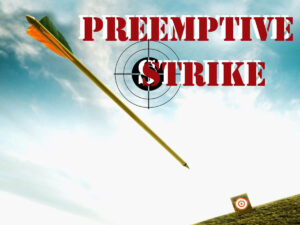
11. Does 6:12 imply that free public education through graduate school should be available to everyone desiring it? Is it wrong for only the rich and/or intelligent to be able to go to the top universities when other equally righteous students must settle for an inferior education?

12. Why, in the first edition of the Book of Mormon, was the Gadianton leader Giddianhi referred to in 4:14 as “Giddianhi the nobler”?
Possible Answers to Points to Ponder in 3 Nephi 1-7
1. Which chapter or chapters from 3 Nephi 1-7 would you think would be most likely to be featured in the illustrated Book of Mormon Stories the Church has prepared for children? Why?
Chapter 1 is the only chapter which was selected. It is probably the most dramatic and easiest for children to identify with, as opposed to the later chapters which deal more with war and contentions on a national level. See: https://www.churchofjesuschrist.org/study/manual/book-of-mormon-stories/chapter-41-the-signs-of-christs-birth?lang=eng
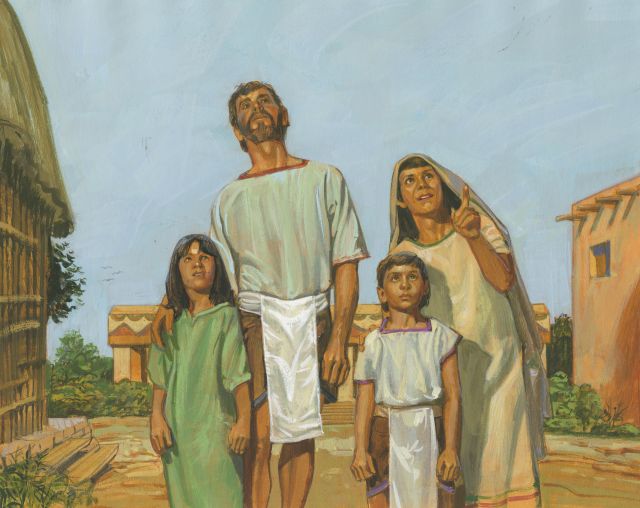
2. Samuel had prophesied in the 86th year of the reign of the judges that “five years more cometh, and behold then cometh the Son of God.” (Hel. 13:1-2; 14:2.) But after the 91st year had come and gone (more than 5 years later), “There were some who began to say that the time was past for the words to be fulfilled, which were spoken by Samuel.” (3 Ne. 1:1, 5.) Were they right? Was Jesus really overdue? What larger lesson is there here for us? (3 Ne. 1.)
Samuel had not said that Jesus would come within five years but after five years. Perhaps the lesson here is that we need to read the scriptures carefully and not read our own ideas into them or insist that our interpretation of them is the only possible one, when several interpretations are possible.
3. Why would the Lord have waited until the very last minute to show the signs of His coming–the very night before the believers were to have been executed? Didn’t He risk giving some of them heart attacks? What do we learn from this?
This is typical of the Lord’s trying His people’s faith prior to providing the blessing. Abraham, for example, had to raise the knife before the Lord’s angel told him not to kill Isaac after all. Answers much sooner would evidently not provide a sufficient test or promote the desired spiritual growth. But we can learn from this not to give up on the Lord if His answers seem slow in coming, from our perspective. It is worth mentioning, however, that it does not say in the Book of Mormon that Jesus came on the very day that the executions of the righteous were to occur, though it is clear that the day was near.

4. In the April 1987 General Conference, President Ezra Taft Benson said: “Recently I have been reading again the marvelous account in the Book of Mormon of the visit of the resurrected Savior to the American continent. As Easter approaches, I have been deeply impressed with the beauty and power of this scriptural account in 3 Nephi, and with its great value for our time and our generation. The record of the Nephite history just prior to the Savior’s visit reveals many parallels to our own day as we anticipate the Savior’s second coming.” Can you point to at least ten parallels between what occurred in 3 Nephi 1-7 and what is occurring or is prophesied to occur prior to the Savior’s Second Coming?
Here are 14:
- Specific signs are given to alert the righteous to the imminent coming of Christ. (Helaman 14; 3 Ne. 1:4; D&C 45:37-40, etc.)
- Great heights of civilization and prosperity. (3 Ne. 6:7-12)
- Pride, dishonesty, immorality, rejection of the Lord, and great wickedness in general. (3 Ne. 6:10-15; D&C 45:32-33; Moses 7:60; 2 Ne. 28:11-15; Mormon 8:36-37)
- Increase in governmental size and complexity. (3 Ne. 6:11)
- Classes–according to wealth and learning. (3 Ne. 6:12)
- Persecution (3 Ne. 1:9; 6:10; 1 Ne. 14)
- Preparation and increase in righteousness and power among the righteous. (3 Ne. 7:21-26; 8:3; D&C 1:12-36; D&C 133:57-58; 3 Ne. 7:18-20; 8:1. Moroni unfolded to Joseph Smith “the majesty and glory of the events that should transpire in the latter days.” (HC 4:537.)
- Great numbers of Lamanites converted. (Alma 23:4-5; Helaman 5:50-52; 3 Ne. 2:12; D&C 49:24; 2 Ne. 30:5-6) [H. Verlan Andersen, Ensign, November 1986, p. 23: “The history of the Lamanites just prior to the Lord’s first appearance on this continent reveals an interesting parallel between what occurred then and what is happening today. Commencing about the year 92 B.C., the Lamanites began coming into the Lord’s Church by the tens of thousands. That conversion miracle, which took place just shortly before the Lord’s first advent, is being repeated now just prior to his second coming.”]
- Few total converts compared to the total population. (1 Ne. 14; 3 Ne. 1:9; 7:2
- Period of conventional warfare followed by civil turmoil and insurgency. (Alma 43-3Ne. 7; D&C 45:26)
- Secret combinations. (Ether 8:21, 24; 3 Ne. 3-7; Helaman 11.)
- Gathering of the righteous for safety. (3 Ne. 3:13; D&C 115:6.)
- Need for food storage. (3 Ne. 4:4; D&C 29:16.)
- Breakdown of the government (3 Ne. 7:1-3; D&C 87:6.)
5. What relevance does 1:13 have for the abortion question? Is this verse evidence that the spirit doesn’t enter the body before birth? Or was the Savior’s voice simply tape‑recorded nine months earlier?
The fact that Jesus told Nephi that He would be born the following day does not in any way prove that the spirit doesn’t enter the body until birth. If Jesus can speak as though He were the Father, which He did in such passages as D&C 29:42, 46, and 49:5, and if an angel could speak to John the Revelator as though he were Jesus (Revelation 22:9-13), it would not have been difficult for a designated angel or for the Holy Ghost to speak for Jesus in 3 Nephi 1:13. Even if the spirit did not enter the body until birth, that would still not be justification for abortion, as the Lord has commanded, “Thou shalt not steal; neither commit adultery, nor kill, nor do anything like unto it.” (D&C 59:6.)
6. How could people who had seen the marvelous signs accompanying Christ’s birth either forget what they had seen or come to doubt its reality within two to four years? Could Joseph Smith have ever come to doubt the First Vision? Why or why not? (2:1.)
Just as the Holy Ghost brings all things to one’s remembrance (John 14:26), so can its absence allow one to begin to doubt even personal experiences, especially those spiritual experiences which cannot be replicated on demand. Joseph Smith might even have come to doubt his experience had he proven unfaithful.
7. What are probably the two best things we can do to protect ourselves against forgetting the spiritual experiences we have personally had? (2:1.)
Probably (1) to live so that the Holy Ghost can always be with us, one of whose functions is to bring all things to our remembrance (John 14:26) and (2) to write down our spiritual experiences so we can refer to them later and be strengthened by them.
8. The Book of Mormon makes clear that the greatest military threats to come to the Nephites were occasioned by their wickedness. Do you think this was this because the Lord wouldn’t help the Nephites in battle when they were wicked, or because their potential enemies were more likely to become aggressive when the Nephites were wicked and disagreeable, or both? (2:19.)
Most likely both.
9. Does the tribute to Lachoneus in 3:12 imply that a righteous person would not give up his wallet to an armed gunman? Or that the U.S., if righteous, would not be intimidated by threats from a foreign power nor deterred from a proposed action by world opinion?
Wisdom would suggest that one not resist an armed robber, in spite of 3 Nephi 3:12. But the scripture does seem to suggest that on a national level, righteous leaders would not feel it necessary to surrender to an unrighteous aggressor nation but to trust in the Lord for deliverance.
10. Can you think of any conditions under which the U.S. would be justified in launching a preemptive strike against North Korea? What if we had clear evidence that they planned to attack U.S. bases the following Thursday if we didn’t strike first? Haven’t we already endured more than three offenses patiently? Or suppose you knew a personal enemy was conspiring to shoot you, but you couldn’t convince the police that you were in any danger. Could you morally sneak up behind him and shoot him first as a defensive measure? (3:21)
The Lord always allows truly defensive measures, but not preemptive offensive strikes under the pretense of defense, as 3 Nephi 3:21 makes abundantly clear. For details on when the Lord would countenance offensive action, see D&C 98:23-37.
11. Does 6:12 imply that free public education through graduate school should be available to everyone desiring it? Is it wrong for only the rich and/or intelligent to be able to go to the top universities when other equally righteous students must settle for an inferior education?
It certainly implies that in a righteous society people would make sure there were opportunities for an education for all who really wanted one. Whether it should be “free” and supported by compulsory taxation is a political question on which good people may differ.
12. Why, in the first edition of the Book of Mormon, was the Gadianton leader Giddianhi referred to in 4:14 as “Giddianhi the nobler”?
Because Oliver Cowdery’s handwriting made “robber” look like “nobler,” and the typesetter made a bad guess.
